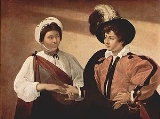
Chiromancy
Overview
Palmistry or chiromancy (also spelled cheiromancy, Greek kheir (χεῖρ, ός), “hand”; manteia (μαντεία, ας), “divination
”), is the art of characterization and foretelling the future through the study of the palm, also known as palm reading, or chirology. The practice is found all over the world, with numerous cultural variations. Those who practice chiromancy are generally called palmists, palm readers, hand readers, hand analysts, or chirologists.
The information outlined below is briefly representative of modern palmistry; there are many ― often conflicting ― interpretations of various lines and palmar features across various schools of palmistry.
Palmistry or hast rekha can trace its roots back to Greece
from Aristotle (384–322 B.C.E.) discovered a treatise on the subject of palmistry on an alter of Hermes
, which he then presented to Alexander the Great (356–323 B.C.E.), who took great interest in examining the character of his officers by analyzing the lines on their hands.
Divination
Divination is the attempt to gain insight into a question or situation by way of an occultic standardized process or ritual...
”), is the art of characterization and foretelling the future through the study of the palm, also known as palm reading, or chirology. The practice is found all over the world, with numerous cultural variations. Those who practice chiromancy are generally called palmists, palm readers, hand readers, hand analysts, or chirologists.
The information outlined below is briefly representative of modern palmistry; there are many ― often conflicting ― interpretations of various lines and palmar features across various schools of palmistry.
Palmistry or hast rekha can trace its roots back to Greece
Greece
Greece , officially the Hellenic Republic , and historically Hellas or the Republic of Greece in English, is a country in southeastern Europe....
from Aristotle (384–322 B.C.E.) discovered a treatise on the subject of palmistry on an alter of Hermes
Hermes
Hermes is the great messenger of the gods in Greek mythology and a guide to the Underworld. Hermes was born on Mount Kyllini in Arcadia. An Olympian god, he is also the patron of boundaries and of the travelers who cross them, of shepherds and cowherds, of the cunning of thieves, of orators and...
, which he then presented to Alexander the Great (356–323 B.C.E.), who took great interest in examining the character of his officers by analyzing the lines on their hands.

